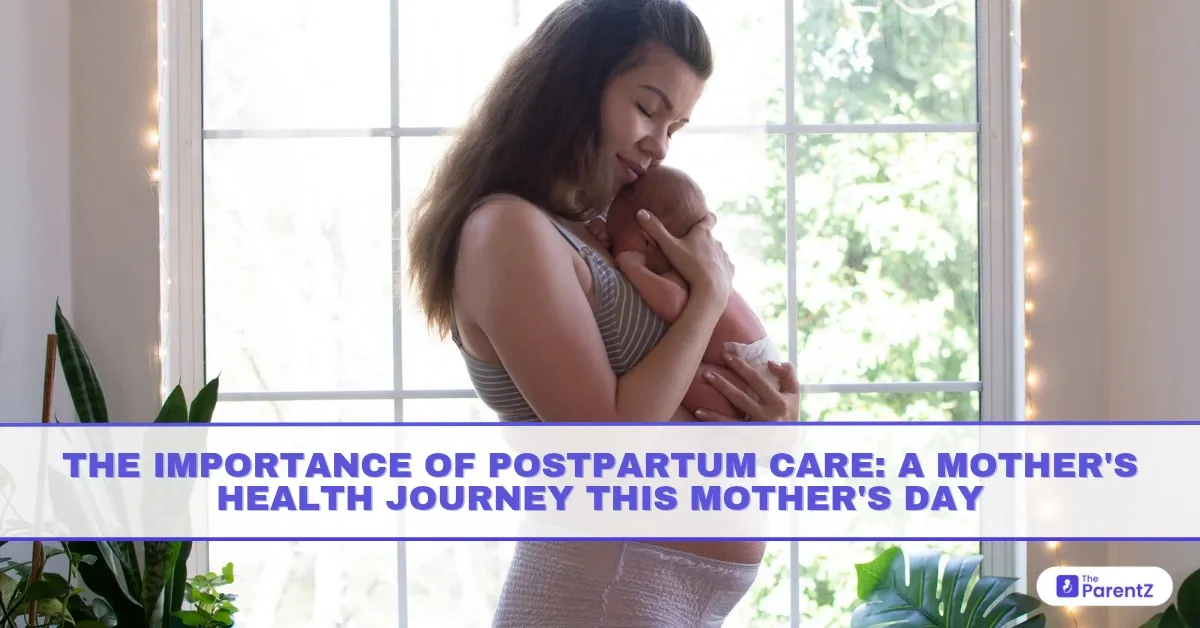When the Cradle Rocks, Don’t Forget the One Who Rocked It
In Indian homes, the arrival of a baby is a whirlwind of excitement laddoos, silver rattles, late-night lullabies, and guests pouring in with gifts and blessings. But amid all the celebration, one voice often goes unheard: the new mother’s.
The postpartum period, those first six weeks to six months after delivery, is a time of massive physical, emotional, and hormonal transition. And yet, while babies receive endless attention, mothers are expected to “bounce back” quietly.
This Mother’s Day, let’s pause to honour the healing journey of every new mom. Because caring for her after birth is not a luxury, it’s essential.
What is Postpartum Care, and Why Does It Matter?
Postpartum care is the support and medical attention a mother needs after childbirth. In India, this phase is traditionally called soothak, jaapa, or sava mahina, depending on the region. It usually includes rest, specific diets, massage, and isolation.
While the intent behind these customs is to protect and nourish the mother, modern postpartum care must also include:
- Monitoring physical healing (especially after C-section or episiotomy)
- Managing pain and infection
- Screening for mental health issues like postpartum depression
- Supporting breastfeeding and sleep
- Offering emotional support and help with baby care
It’s not just about pampering, it’s about survival, strength, and long-term health.
The Indian Reality: What Mothers Go Through
In India, many mothers face barriers to proper postpartum care:
- Lack of education: Many aren’t informed about what symptoms are normal vs. what needs medical attention.
- Neglect of mental health: Emotional changes are dismissed as “mood swings” or “baby blues.”
- Overload of traditional restrictions: While customs like hot oil massages or special diets can be helpful, rigid rules and isolation can make mothers feel overwhelmed or lonely.
- Pressure to “bounce back”: Whether it’s looking slim or resuming household chores, societal expectations can sabotage healing.
In nuclear families, many women lack help. In joint families, too much interference can add stress. The balance is delicate.
What Does the Body Go Through After Delivery?
Let’s understand just how much a mother’s body has to recover from:
- Uterus shrinking back: From watermelon to pear-sized in weeks.
- Lochia (bleeding): Normal but needs monitoring for excess.
- Perineal pain or stitches: After vaginal delivery or episiotomy.
- C-section recovery: A major abdominal surgery requiring wound care and limited mobility.
- Hormonal crash: Which can trigger tears, anxiety, or even depression.
- Breastfeeding: Sore nipples, engorgement, or infections like mastitis.
- Sleep deprivation: A huge factor in both physical exhaustion and mental strain.
This is why postpartum care is not a few days of attention. It’s a process slow, steady, and sacred.
Mental Health: The Silent Struggle
Postpartum depression (PPD) affects up to 1 in 5 Indian mothers, though most cases go undiagnosed. Many women experience:
- Guilt about not feeling joyful
- Anxiety about their baby’s safety
- Feeling disconnected from the baby
- Crying spells or emotional numbness
- Suicidal thoughts (in severe cases)
Family members often brush this off as an “adjustment phase.” But untreated PPD can affect mother-infant bonding and even lead to long-term health issues.
The solution? Awareness, kindness, and seeking professional help. PPD is treatable. And recovery is absolutely possible with the right care.
Traditional Care with Modern Wisdom: What Works in Indian Homes
There’s wisdom in the old ways, but also room to adapt. Here’s how families can blend tradition and modern medicine:
- Nourishing food: Gond ke laddoo, ajwain water, methi sabzi, these are rich in iron, protein, and digestion-boosting ingredients. Continue them alongside medical advice.
- Oil massages: A trained maalishwali can help improve circulation and reduce pain, but ensure hygiene and proper technique.
- Rest, not isolation: Yes, rest is vital. But emotional support is just as crucial. Let her rest, but don’t leave her alone.
- Listen to her voice: If something doesn’t feel right pain, fear, sadness validate her experience. Encourage check-ups when needed.
How Partners and Families Can Help
- Share the baby care. Let Mom sleep while you burp, change, or rock the baby.
- Protect her time. Shield her from unnecessary visitors or pressure.
- Praise her often. Tell her she’s doing great—even when she doubts it.
- Watch for signs. Look for symptoms of infection, extreme fatigue, or depression.
- Check in, emotionally. Ask, “How are YOU feeling today?” and really listen.
- Help her seek help. Offer to book a doctor’s appointment, find a therapist, or drive her there.
Resources in India for Postpartum Support
- Cloudnine & Apollo Cradle: Offer postnatal classes and medical follow-ups.
- Lactation consultants: Available in major Indian hospitals and via platforms like Lactation Link India
- Online Therapy: Platforms like YourDOST, BetterLYF, or Mpower offer therapy in regional languages.
- Postpartum doulas: Available in metro cities to support recovery at home.
A New Way to Celebrate Mother’s Day
What if this Mother’s Day, we didn’t just give flowers or cards?
What if we said:
- “I booked your health check-up.”
- “Let me take care of the baby go nap.”
- “It’s okay to cry. We’re here.”
- “You gave birth to life. Now let’s help you live well too.”
That would be a celebration rooted not just in gratitude, but in action.
With Love, For Every New Mother
To every new mother reading this: you are not alone. You are allowed to rest. You are allowed to feel messy. You are allowed to ask for help. And you deserve to be cared for just as much as your baby.
To families and loved ones: this Mother’s Day, let’s honour her healing, not just her strength. Let’s stand beside her—not just as she mothers, but as she slowly, beautifully becomes herself again.
Because postpartum care isn’t a favour. It’s the foundation of lifelong health—for her, and for the family she so fiercely loves.





Be the first one to comment on this story.